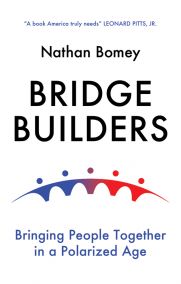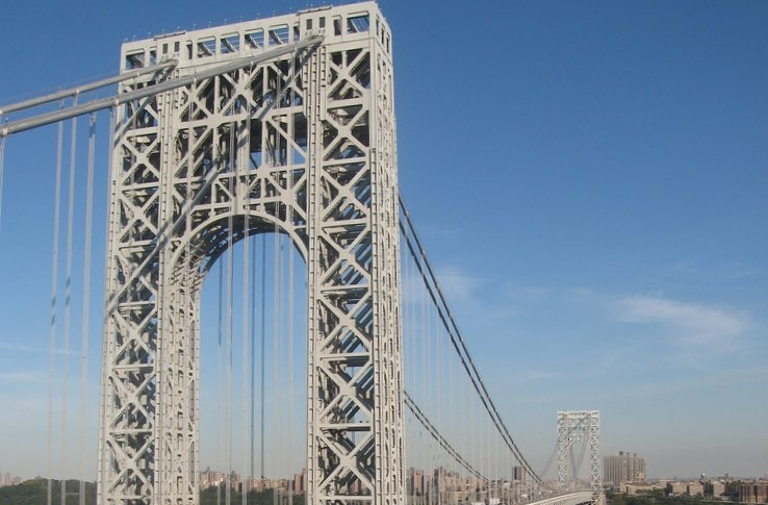 Ed. note: This post is an excerpt from Bridge Builders by Nathan Bomey and published by Polity Books. You can find out more about the book on their website here.
Ed. note: This post is an excerpt from Bridge Builders by Nathan Bomey and published by Polity Books. You can find out more about the book on their website here.
When I began working on this book in late 2018, I never imagined we would see the type of national outcry over the compounding scourge of racism that we saw in the wake of the death of George Floyd, a 46-year-old Black man, on May 25, 2020, at the hands of the police in Minneapolis. The searing sound of Floyd pleading, “I can’t breathe,” and crying out for his mother as White officer Derek Chauvin kneeled on his neck while he suffocated shocked many White Americans into realizing for the first time that racism manifested in the form of police brutality is still real and vicious. But, perhaps even more significantly, it also shocked them into recognizing that police brutality is just one element in a much broader societal scheme that keeps Black Americans under the knees of White privilege.
The death of George Floyd was the latest in a seemingly endless series of violent acts by police against Black people – including incidents like the killing in 2014 of Michael Brown in Ferguson, Missouri, which spurred outrage among some White Americans for a while, yet eventually faded from the national spotlight. But this time, the shock factor sparked a burgeoning awareness of the need for White Americans to step out onto metaphorical ledges and to begin building bridges across structural ravines that have long prevented Black Americans from escaping the trenches of economic inequality, underfunded schools, and lack of access to adequate medical care, to mention just a few obstacles to social justice.
The national outpouring of anger following Floyd’s death was largely directed at the White establishment, as Americans of all races hit the streets throughout the country to protest and demand change despite an ongoing pandemic that put their lives at risk. The groundswell of outrage can serve as the raw material for the type of bridge building that needs to be done to begin overcoming the whitecapped rapids of racism. The key will be to ensure that the protests translate into lasting bridges, which are the key to policy change. For that, White Americans, myself included, cannot ask Black people to meet us halfway. White people need to use their voices and places of privilege to speak up and take action by constructing the bridges that they have so long neglected to build.
Building bridges between people of difference against a backdrop of racism, political polarization, misinformation, and social division may sound like a milquetoast way of pursuing change. But it’s not. Rather, it’s a bold form of countercultural revolution. It stands in stark contrast to the typical way of doing things, in which we stand firm on our cultural biases, cling to social and political isolation, and refuse to consider the possibility that we could be wrong.
Bridge building does not, however, require unity. And it does not involve cultural assimilation. That is a false assumption. What’s required is the pursuit of understanding – that is, the pursuit of social trust, as David Blankenhorn of Braver Angels described it. Social trust paves the way for structural change that can bring about tangible benefits for our society at large.
But how do we pursue social trust when the things that divide us feel so overwhelming? How do we achieve policy progress when our polarized politics have taught us that we should never have to compromise? How do we foster improved communication to combat the crisis of misinformation that fans the flames of division? And how do we ensure that the movement that arose in the wake of George Floyd’s death turns into substantive change among White Americans who previously did not grasp or care about the need to fight racism?
As I began considering ways to address polarization in this book, I figured there must be people out there who aren’t accepting the status quo. There must be people who are bringing others of difference together. There must be people who are dedicating themselves to fostering dialogue, mending broken relationships, and finding common ground.
I’m here to tell you that they’re out there. I visited them. I talked with them. And I believe that we can – we must – learn from them.
They are not Pollyannaish. They are not impervious to discouragement. They are not flawless.
But they are hopeful, they are driven, and they are countercultural.
They are bridge builders.
Teaser photo credit: By John O'Connell – originally posted to Flickr as George Washington Bridge from New Jersey, CC BY 2.0, https://commons.wikimedia.org/w/index.php?curid=10903748





